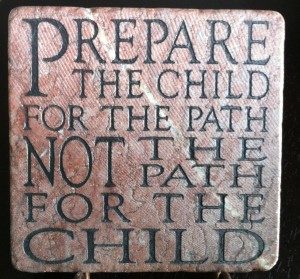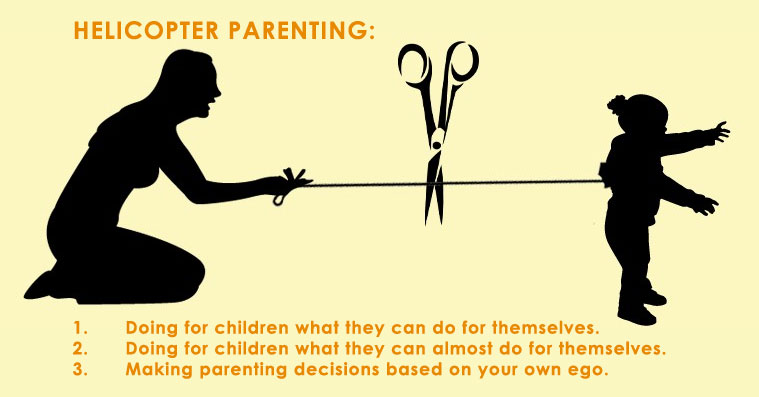Prepare the Child for the Road, not the Road for the Child. —Native American proverb
This article is basically an op. ed. piece. And it’s “parent-y.” It’s totally my opinion, and I’ll take any heat and commentary on it as productive.
It’s been my (and most transactional analysis psychologists’) premise that the experiences of our youth, from about two years old through about six, form our Knower/Judger persona. It is thought that through that age period we make decisions about how the world works and how we fit in it. We create our concepts of right and wrong, persuasion, self-worth, and thousands of things that we’ll compare ourselves against for the rest of our lives. We may even have a concept of the type of spouse we’ll marry, and, if we grow up in certain environments, even how often we should beat him or her.
The childhood “imprinting” years are likely the most important experiential learning years of our entire lives. And yet our parents, or even we as parents, frequently fail to take them as seriously as we would if we understood the unfolding impact.
Once we have these “rules of life” embedded in our behavior patterns, it can be almost impossible to switch them off or even edit them without some hard work to reevaluate the data as they existed when the original decisions were made and how they exist today.
Raising kids today takes more time and effort than most parents seem able to muster up. Two-income families have meant that one parent isn’t around all the time. So a great deal of that two-to-six-year-old’s time is spent facing other “big people” in their lives, who shape and transmit their rules and standards to the next generation.
And when today’s parent does get to interact with the kids, they want life to be perfect. After all, if they’re playing with the kids, it’s their time off, right? So nobody gets to hurt themselves (“Johnny, don’t climb on that fence!”). Nobody gets to perform below average. (“Mrs. Teacher, you must have misunderstood Johnny.”)
With some luck, the day care staff may apply some life-learning and discipline consistently, but what are the chances that this matches parental standards?
It has recently been my understanding (i.e., “current” understanding—everything for me is modifiable with new data) that many of our societal woes can be traced back to the job we do as parents for our kids. It seems the ones we most hear about come from opposite ends of the parental involvement continuum. On one end we have kids who basically raise themselves with little to no parent involvement (statistically absent male role-models). On the other end we have parents who can’t stand to see their kids fail, or hurt themselves, or be wrong. They spend their time “preparing the path for the child.”
The latter population of kids ages out of this “rules of life” learning period befuddled when Mom doesn’t petition their boss to give them another chance or Dad doesn’t interfere with the police report concerning the DUI summons. They get to adulthood without much experience making their own decisions, crashing into smaller, less-damaging walls, so to speak.
On the other end of the spectrum, where kids get little parenting of any kind, they’re left more or less to their own devices. And the world can be overly tough on them. They see older siblings attracted to gang life (as the only solution to finding community or family). To a lot of these, a long life is not meant for them. So what difference does it make if they follow the gang and take risks most of us would never imagine.
Consider the impact of kids raised on these two extremes.
A lack of parenting swallows one population into a life that supports risky if not fatal behaviors because they’ve not made decisions to the contrary and away from a life with mentors and smaller, less-damaging life lessons.
Helicopter parenting on the other end of the scale creates grownups with diminished decision-making skills. They’ve learned that nothing should hurt them and somebody will bail them out. To the degree they believe this model, I think they’re headed for a life of immense frustration (from unmet expectations). The world just isn’t like that.
- This is parent-y. I told you it would be. I confess. If we want children to be our future, then I want to see us spend more resources (personal time and money, governmental, spiritual) creating our leaders and followers of tomorrow.
It has been said that our kids don’t come with instruction manuals. And it’s pretty obvious they’re all different. That means that interfacing with our kids in an instructional and meaningful way to pass on successful traits and cultures will take some of our time and energy away from other “stuff.”
Suck it up, Buttercup. It’s the future of civilization. Well, the Western value system anyway. Other societies appear to me to do a better job than we do.
Sigh. Rant over.





Great read. Thank you! I needed that! (And all my girls!)
Your girls needed that? Or you needed your girls? Glad you appreciated it.